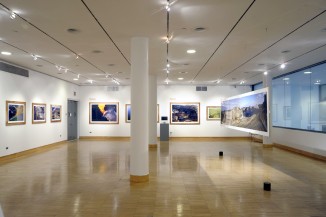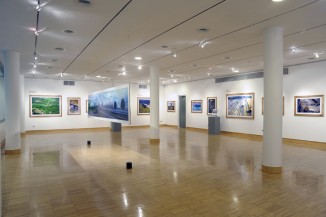Landscapes of Extraction Exhibition
Landscapes of Extraction: The Collateral Damage of the Fossil Fuel Industries
As the first public exhibition mounted by the Institute, Landscapes of Extraction: The Collateral Damages of the Fossil Fuel Industries examined the fossil fuel industries’ unconventional, high-risk methods of extracting fuel sources. It is an approach that exists across the continent, from the northern forests of Canada to the Gulf of Mexico, and one that has resulted widespread environmental damage and dangerous levels of pollution. The exhibition featured the photography of J. Henry Fair, an internationally renowned photographer of environmental disasters and resource-extraction operations. His photographs exist between the beautiful and uncanny, the abstract and fact. Moreover, they inspire questions and provide certain truths into the subjects of the photography and efforts to silence environmental and political issues. The exhibition also included thirty original maps and diagrams produced by the Institute, documenting the extent of infrastructure and landscape impact associated with such industries as hydrofracking and mountain top removal.






